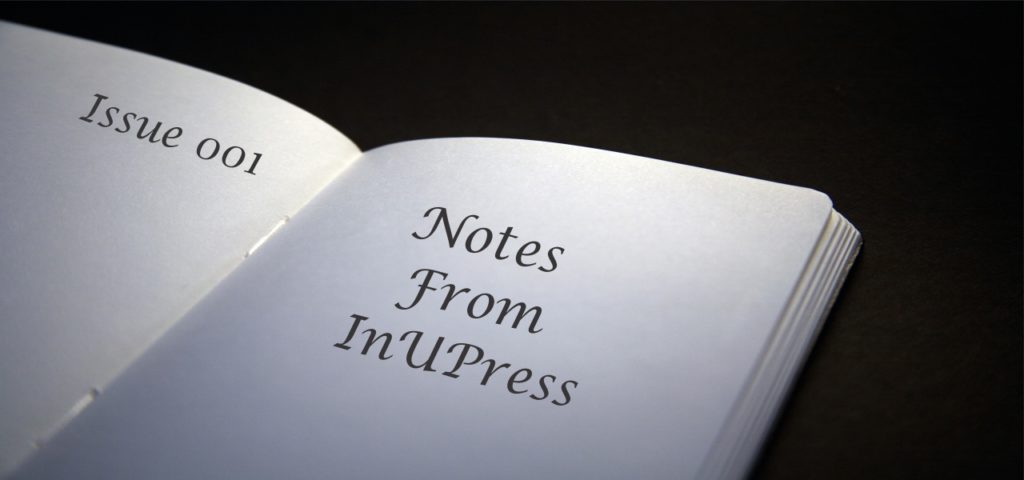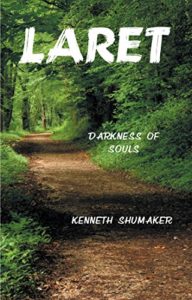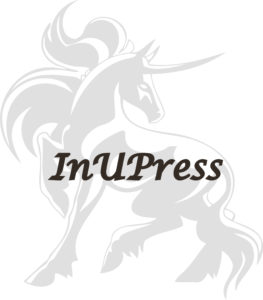
Issue 001
August 27, 2017
Today there are almost equal advantages and detriments to self-publishing and traditional publishing, while the supported publishing gets a stiff bad rap from both sides. This is not to say that all the different publishing formats condemn each other. Some people utilise and support all three formats. Those who use combinations of formats are termed the hybrid published authors, or publishers. And they take a lot of flak for fence sitting.
Myself, I’m hybrid, as I’ve dealt with all three publishing formats. I’ve been traditionally published twice, I currently self-publish my work, and I’ve been supported published. As well, I own a supporting desktop publishing business that does traditional publishing as well. With this mixed bag of experience, I may be one of the few who can speak (from experience) from on top of the fence.
Traditional publishing, gets top marks from some of those who break its barriers and squeak into the houses, thus getting published. Through perseverance and hard work, mixed with a ton of luck, some manage to make some money and/or fame. Basically, besides the writing and submitting manuscripts to the publisher, all the author has to do is the marketing, putting in the effort that is agreed upon with the publisher. Some publishers may still pay a small monetary advance to strong, promising authors. But the advances have reduced significantly to just a mere few thousand dollars, if paid at all. And the author has to realise that they receive no royalty payments until that advance is paid off. Also, with traditional publishers, royalties are paid on gross of sales after expenses are deducted. So, if you sign for a 12% royalty, you do not receive $1.20 of each $10 of sale, you receive 12% after expenses are deducted. A book selling for $10 could gross you $0.86 or less on a 12% royalty. You are also expected to do almost all of the promotions and marketing after the launch and the release. You are responsible for building your own branding, etc. Also, most publishers now expect you to have your author brand and a social presence established before they’ll sign you on.
Royalty payments tend to range from 4% to 12%, but may be as high as 24%, depending on predicted sales of your product and your marketability. This is because the publisher has to recover the thousands of dollars they spent getting your product ready for distribution and market. Once your advance is paid, you may receive your royalties quarterly, if enough accumulate.
Supported publishing generally entails a publishing house who guides you, distributes, and prints your book. They organise all the editing, book cover design, formatting, and so forth for fees. Benefits? You, as the author, don’t have to hire the people to do the work or know what needs doing. You don’t distribute to vendors or organise the printing of your product, and you don’t have to collect the sales from vendors, etc. But you pay fees, or a fee. With most reputable supported publishers, you keep the rights to the work, or they may lease just the rights you want them to have for the length of term you’re willing to lease to them. Some help you with marketing and promotions, for a fee.
Supported publishers pay you a royalty, usually much higher than a traditional publisher, as they’ve already recovered most of their costs from you. However, they still have expenses in regards to distribution and to vendors for the term of your lease or contract. So, they keep part of the sales to recover their costs. Some pay royalties on net sales, some on gross sales. The typical range for royalties varies significantly, based on your brand, marketability, and your product. The royalties, are usually based on gross of sales, range from 10% to 45%, and as much as 65% in extreme cases. The author may be paid quarterly, once enough royalties have accumulated, depending on the arrangement you make with the publisher.
Self-publishing gives the author the ultimate control of the publishing, as well as total responsibility. No one else is responsible for any aspect of your publishing. The self-publisher is in charge of deciding what aspects of the publishing they will hire out. You receive no help unless you ask for it, and even then there are no certainties in receiving help. If you succeed, you reap all the rewards, except for what you parcelled out in getting the product published.
Royalties? You reap what you sell minus expenses. It varies from distribution type and vendor, being as high as 100% of net sales to as low as 4% of gross sales. It’s up to you how you distribute and to which vendors. But realise that some types of vendors and some markets are restricted and closed to self-publishers. Some markets are still reserved only to traditional publishers even today. You’re 100% responsible for marketing and promotions. You get paid depending on the schedules of the vendors and distributors and your arrangements with them.
Then comes the issues of accolades and awards. Most prestigious awards are reserved for traditionally published authors, but there are many opening up to self-published and supported published authors now, though these authors find it much harder to break into awards and accolades.
No matter what method you use, the money only arrives with sales. You need a product that people are willing to buy, and you need to market and promote in whatever manner you can.
Typically, it is not just sheer luck that gets sales, lightning-strike success is hyper-rare – one in ten million authors. It is said that of people surveyed, 81% thought about writing something, but only 5 to 8% did. Of those authors who write, it is statistically shown that 91% see less than 200 combined sales of their works in their lifetime.
If 81% of the world’s 7 billion people want to write, that equates to roughly 5.6 billion people. Of those, supposedly only 283 million write something. Of these, 25 million sell more than 200 combined sales in their lifetime. That is if the whole world population participated.
But according to Amazon statistics and also Author Earnings, there were roughly 8 million published authors in 2016, in English speaking print. From what I can ascertain, fewer than 720,000 ever sold more than 200 combined sales on record in their lifetime. Of those, less than 11,000 broke 2,000 sales of all their combined products in one year. These figures combine traditional, supported, and self-published authors. But the records show of these roughly eleven thousand authors, 52% were self-published or supported-published. To add to this, of the top earners in the reports, the combined sales of published material in 2016, 48% were self-published or hybrid.
What I’m showing you is that it’s still anyone’s game. It is up to you, the author, to decide how much effort and expense you are willing to put into being published, and then choose your format of publishing. Don’t let naysayers sway you. Almost everyone is biased, favouring the way they’re already doing things or the way they prefer to do business.
I’ve had equally good and bad experiences in all three. My sales are equal in all three. So, I simply leave it to you to determine what level of effort you are comfortable with.
May the words stay with you!
By Kenneth Shumaker
© 2017 by Kenneth Shumaker with Inevitable Unicorn Press
www.inupress.ca inupress@inupress.ca
All Rights Reserved. No part of this work may be reproduced or transmitted in any form or by any means, electronic or mechanical, including photocopying, recording, or by an information storage and retrieval system (except by a reviewer who may quote brief passages in a review or other endorsement or in a recommendation to be printed in a magazine, newspaper, or on the Internet) without permission in writing from the publisher. However, when contacted, the author may be generous with reprint rights and articles.
Trademarks and myriad names used in this work are not authorised by, associated with, or sponsored by the trademark owners. No association with the corporations or names is implied or intended.
About the author: Kenneth Shumaker (Rusty Knight):

Following a long break from writing, Kenneth recovered his passion for writing. He is a science fiction and fantasy genre author, as well as a non-fiction writer, with Inevitable Unicorn Press (InUPress). Kenneth has been blogging with the Owerton Challenge and other blogs for many years. He now writes several serial short stories. Also, he has a fantasy novel available titled, ‘Laret’. Kenneth’s two businesses, his wife, his two children, and his six grandchildren keep him busy.
We would like to acknowledge the following for their contributions:
The episode authors are Kenneth Shumaker.
Our episode editor is Donna Shumaker.
The graphics and headers are by Kenneth Shumaker.
The episode distribution, marketing, production, promotions, and publishing is by Inevitable Unicorn Press, known as InUPress.
Awesome! You finished episode 001 of Notes from InUPress.
Let us know what you think of Notes from InUPress by following this links: www.inupress.ca While you are there, you can join the Inevitable Unicorn Press e-mail subscription list to receive news and updates about work from our authors such as; Kenneth Shumaker, Eric J Kregel and Aria. When you sign up for the e-mail list, you will receive a free document when you first sign up. This free pdf changes with time, the gift was a copy of Kenneth Shumaker’s. biography of the protagonists, the Black Swans, from his epic fantasy novel, ‘Laret’. Later the bonus was an episode from the epic fantasy serial series, ‘Lanis’.
While on the home page of InUPress.ca leave a comment, telling us what you think of our author’s work, or us leave your thoughts about the website. We appreciate your time and we will try to respond to questions and comments.
Thank you for reading Notes from InUPress
Yours,
Kenneth Shumaker with Inevitable Unicorn Press,

Join Kenneth Shumaker (Rusty Knight) in his Dragoman Bloodgrue Volume collection anthologies. ‘Dragoman Bloodgrue, Volume I: Fare Where?’ is the first of the episodes of the Dragoman Bloodgrue serial series. Read how Bloodgrue tests the gods’ resolve. Do the gods let the brave be fools? Is Bloodgrue brave or a fool? Follow Bloodgrue to see where his life’s path leads him. In ‘Dragoman Bloodgrue, Volume I: Fare Where?’ we are introduced to Bloodgrue as he begins his journey climbing the social ranks of Mount Oryn in North Docks. Find this volume to purchase on:
: Amazon
: Etsy
: InUPress
: Kobo

Enjoy Kenneth’s new intriguing fantasy novel ‘Laret’, released June 19, 2017. Enter the Darkness of Souls and journey with the Black Swans through the Web Shireward as they battle the invading armies of the god Tearmain. This captivating novel is available at:
: Amazon
: InUPress
: Kobo

Discover the new novel, ‘Exhaust from the Tin Woods’, written by Eric J Kregel and published by InUPress. You may purchase the novel at:
: Amazon
: Etsy
: Kobo
: InUPress
With an annual subscription from www.inupress.ca, you can receive our monthly delivery of ‘Notes from InUPress’ for C$12.99 annually. The notes, by Kenneth Shumaker, contain interesting information on writing and publishing and is published through Inevitable Unicorn Press (InUPress).
Also, Kenneth has coaching sessions on the art of writing and getting published for C$125.99 per hour, available to a limited number of applicants. To arrange an intake appointment email inupress@inupress.ca or call 1-780-523-5835 between 10:00 am and 5:00 pm MST, Monday through Saturday.

InUPress offers a 30-day satisfaction guarantee. Your payment will be returned to you if you are not 100% happy with our friendly courteous client service and professional product.
Sincerely, Kenneth with Inevitable Unicorn Press (InUPress).
Thank you for reading.
Kenneth Shumaker and Aria of Inevitable Unicorn Press.
Contact us at our website:
or through email at:
or give InUPress a phone call at:
1-780-523-5835
or reach InUPress’ postal mail at:
InUPress
Rusty’s Den
Box 3323
High Prairie, Alberta, Canada
T0G 1E0


![]()
![]()